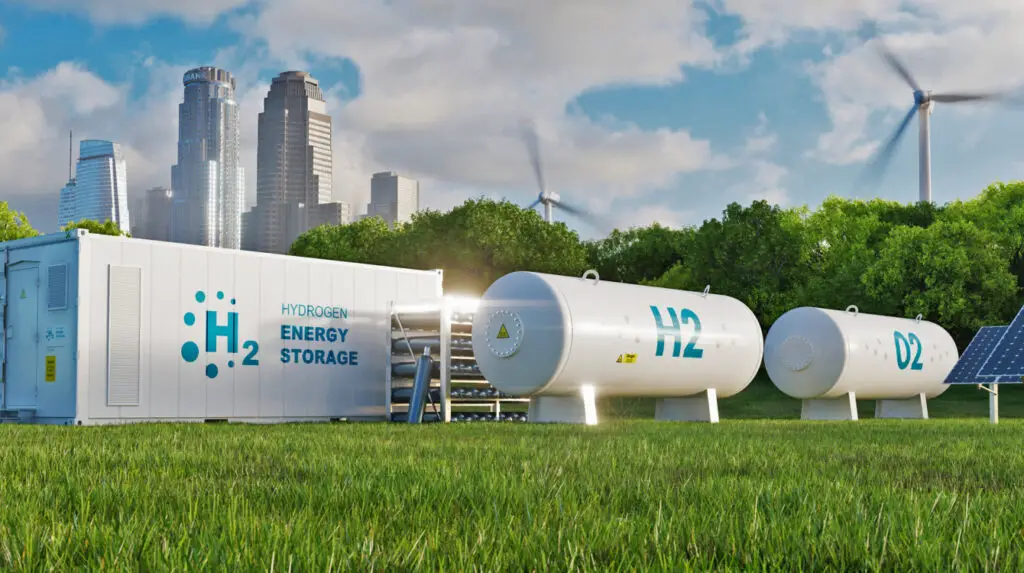- Green hydrogen is defined as hydrogen produced by splitting water into hydrogen and oxygen using renewable electricity.
- Green hydrogen is the future for Africa, especially in the wake of transitioning from old ways of energy production to modern systems featuring clean, renewable energies.
- The conversation on clean and renewable energy has become interesting over the years as technology and finance in the sector grows.
Africa has the potential to produce $1.06 trillion worth of Green hydrogen energy, according to a European Investment Bank report dubbed ‘Africa’s Extraordinary Green Hydrogen Potential’.
Global demand for hydrogen is projected to rise seven fold by 2050, with Egypt, Kenya, Mauritania, Morocco, Namibia and South Africa primed to ride the demand for green energy.
Another report by Africa Green Hydrogen Alliance by 2050 asserts that green hydrogen could increase the GDP of the six nations by $126 billion, equivalent to 12 percent of their GDP.
The future is exciting, especially when numbers align with the best possible outcomes.
READ:Powering Africa: Renewables safest bet for sustainable future
In this case, European Investment Bank (EIB), International Solar Alliance and the African Union study on Africa’s green hydrogen potential estimate that the region has the potential to harness solar energy to produce 50 million tons of green hydrogen a year by 2035.
This will help secure the global energy supply, create jobs, decarbonize heavy industry, enhance global competitiveness and transform access to clean water and sustainable energy.
“Africa has the best solar energy in the world, and transforming solar power into green hydrogen can strengthen energy security, cut emissions and pollution and decarbonise industry and transport,” Ambroise Fayolle, Vice President of the European Investment Bank commented.
On the quality front, Dr Ajay Mathur, Director of General International Solar Alliance, argued that solar photovoltaic technology had provided the region with the cheapest electricity.
“It will cost below €2 per kg in several African countries by 2030, much lower than the current mass assumption of €5 and a stark contrast to the $60-70 paid for an oil barrel. Thanks to this low-cost electricity and decreasing electrolyser costs, the next step is providing access to a clean fuel, cheaper than all the current fossil fuels. It will enable us to decarbonise the power sector and most hard-to-abate sectors – fertilisers, steel manufacturing, and refineries,” Dr Mathur commented.
The conversation on clean and renewable energy has become interesting over the years as technology and finance in the sector grows.
In the same vein, the new analysis estimates that green hydrogen investment could reduce carbon emissions in Africa by 40 percent, replacing 500 million tons of carbon dioxide annually.
Africa energy landscape
Affordable energy is Africa’s ambition. Over the past decades, energy access across the continent has become a challenge demanding an immediate solution.
Universal access to affordable electricity achieved in the region requires bringing at least connections to 90 million people a year, triple the rate in recent years.
According to information from International Energy Agency (IEA), 600 million people, or 43 percent of the total population, lack access to electricity, most of which are in sub-Saharan Africa. Countries like Ghana, Kenya and Rwanda are on track for full access by 2030, offering success stories other countries can follow.
Renewable energy sources in Africa (hydro, sun and wind) are another window of opportunities apart from oil and natural gas that can attract billions in the region.
In 2020, at least 9 percent of all energy in Africa was generated from renewable sources, according to reports by Statista.
North Africa is the current renewable energy leader in the region with an energy capacity of 24,840 MW current and 10,095 MW under construction, while Southern Africa is lagging with over 4,000 MW capacity and 2,209 under construction.
An April 2022 publication by World Economic Forum (Weforum) highlighted that when all under-construction projects are completed, central Africa’s capacity is set to more than double.
However, the green hydrogen report came to the fold with exciting facts and numbers that give Africa a clear insight into the future of energy generation.
“Solar powers green hydrogen is economically viable and can be produced at less than EUR 2 per kilogramme, cheaper than traditional fossil fuel energy, and cater both for local energy demand and allow green hydrogen to be exported to global markets. This is equivalent to energy costs of USD 60 a barrel,” the report stated.
READ:Energy & Environment – deal boosts renewables
Like any other avenue in the modern economy, the commercialization of green hydrogen is essential to make Africa benefit from its potential and become sustainable in realizing its clean energy transition.
It is therefore paramount for the region to enable at least 50 million tons of green hydrogen for production by 2035. For the latter to occur, strategic national planning, progressive regulation and incentives are required for private actors to execute better and sound investments.
Additionally, pilot projects need to showcase success in green hydrogen generation and storage distribution and use the latter for the commercialization phase.
“Market-based partnerships are needed to enable mass-scale domestic and international off-take and demand for green hydrogen, and increase cooperation to design, finance, build and operate green hydrogen production, storage and distribution infrastructure,” the report stated.
Renewable energy has many benefits, and the market is strong enough to realize the potential earlier stand to reap rewards of the future.
